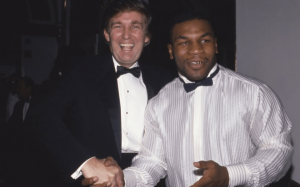Schadenfreude in American Politics
“Normally, we are ambivalent about taking pleasure in the suffering of others. Even if we gain from the suffering, we pull the long face. But misfortunes that seem so obviously deserved liberate our pleasure. Who can suppress the delectable blend of schadenfreude and righteous gloating?”
Richard Smith, Ph.D., writing for Psychology Today
Schadenfreude is a German word which describes the pleasure derived from the deserving pain or misfortune of others. There is no equivalent word in English, but it’s not hard to find examples of it.
Just think of the long-running TV show, America’s Funniest Home videos, or its web-based equivalent, FailArmy. Civilized though we are, most of us can’t help but take some small pleasure in comedic mishaps which inflict a bit (or a lot) of pain on an unwitting victim.
If you have any doubt that the feeling is universal, just look at the number of views on any given FailArmy video. Schadenfreude is a powerful thing. Could it even be strong enough to influence voting habits?
Years ago, social psychologist David Combs studied schadenfreude in the reactions of Democrats and Republics to certain events. He showed his subjects a range of events from elections in the early aughts. Some of these events were “inherently funny”, like George W. Bush falling off a bicycle or John Kerry looking silly in an over-sized space suit — the kind of stuff you’d see on America’s Funniest.
Not surprisingly, Democrats found the Bush mishap funnier than Republicans did and vice versa. The stronger the test subjects identified with one party or the other, the greater the degree of pleasure they got from the opposing figure’s misfortune. In other words, political affiliation increased their schadenfreude.
A writer for the Oxford University politics blog, Oxpol, theorizes that Donald Trump owes some of his success to the effects of schadenfreude. It’s a compelling argument. The overarching theme of the 2016 presidential election was the loss of trust in condescending, out-of-touch American political and media elites. Trump, with his lack of experience and aloofness towards party protocols, seemed to embody this feeling.
Millions of Americans are still hurting from the economic recession in 2010, fuelling anxieties about immigration and globalization. Trump promised to return fire on those who voters blamed for their own suffering. Mexico would pay for the wall. China would get hit with tariffs in return for supposed trade-cheating. American companies who outsourced jobs would face consequences.
His interactions with the media had the same flare. Trump’s ability to send the reporters into a flurry of fact-checking and disdain showed voters he could get back at the shadowy media elitists.
Trump also mocked and belittled his fellow candidates during the Republican primary, to the pleasure of Republicans and Democrats alike. He took the political elite down a peg. Maureen Dowd, a democrat and writer for the New York Times, wrote at the time that, “The most enjoyable thing about the Trump phenomenon has been watching him make monkeys out of a lot of people who had it coming.”
Another writer, Isaac Chotner of Slate, saw the schadenfreude as well. But he was wary to indulge in this pleasure of suffering. He warned, “Those liberals who find themselves rooting for Trump, in the hope that his continued success will only further damage the GOP, are playing with fire—and putting their self-satisfaction ahead of the interests of the country.”
Good call, Isaac.
